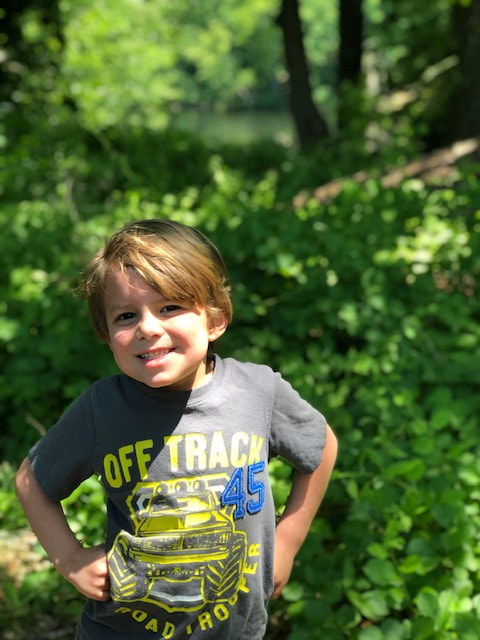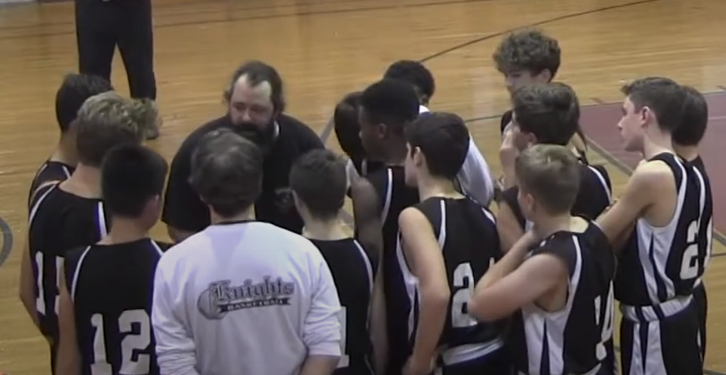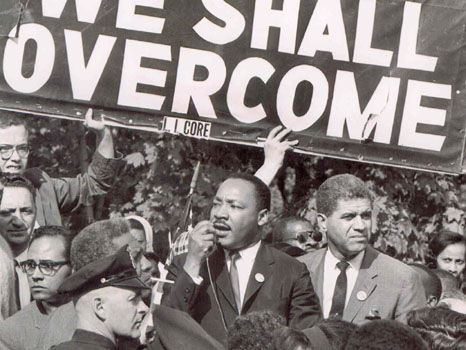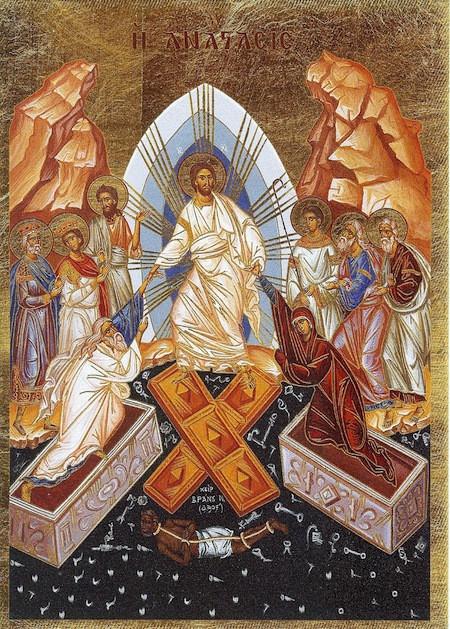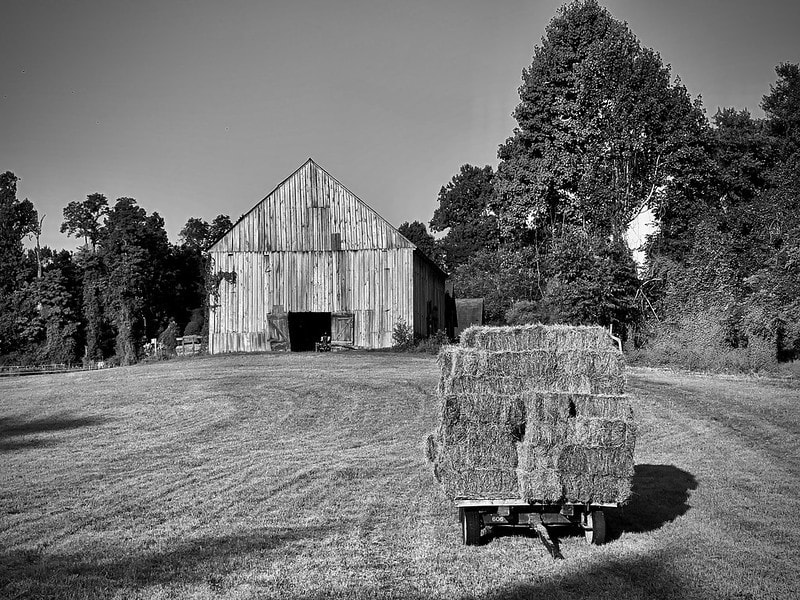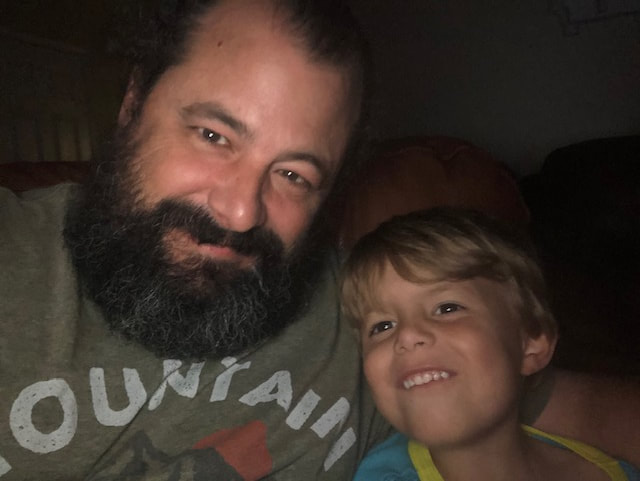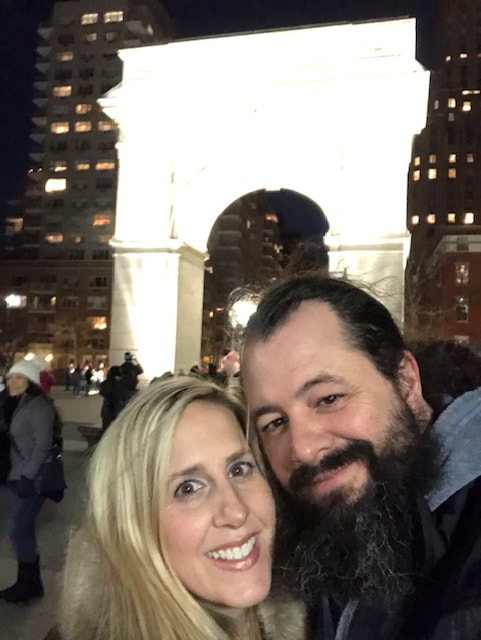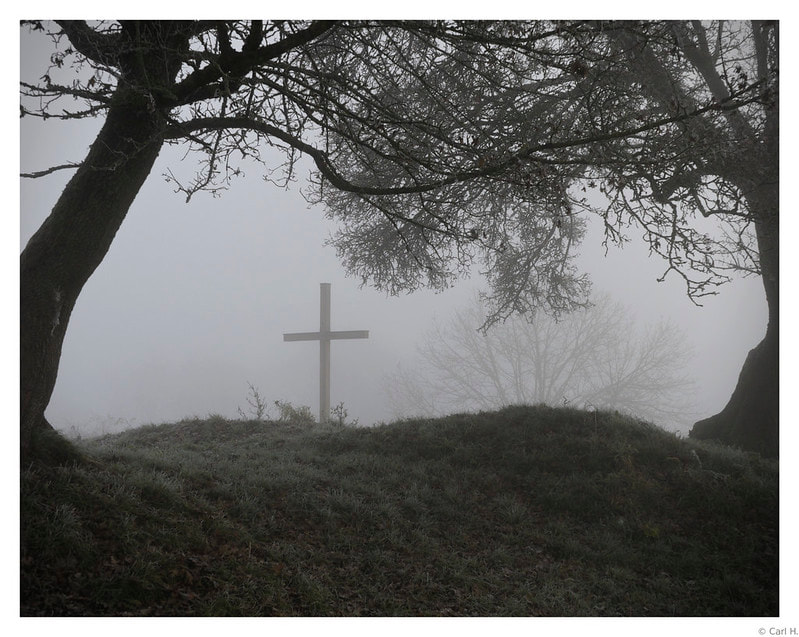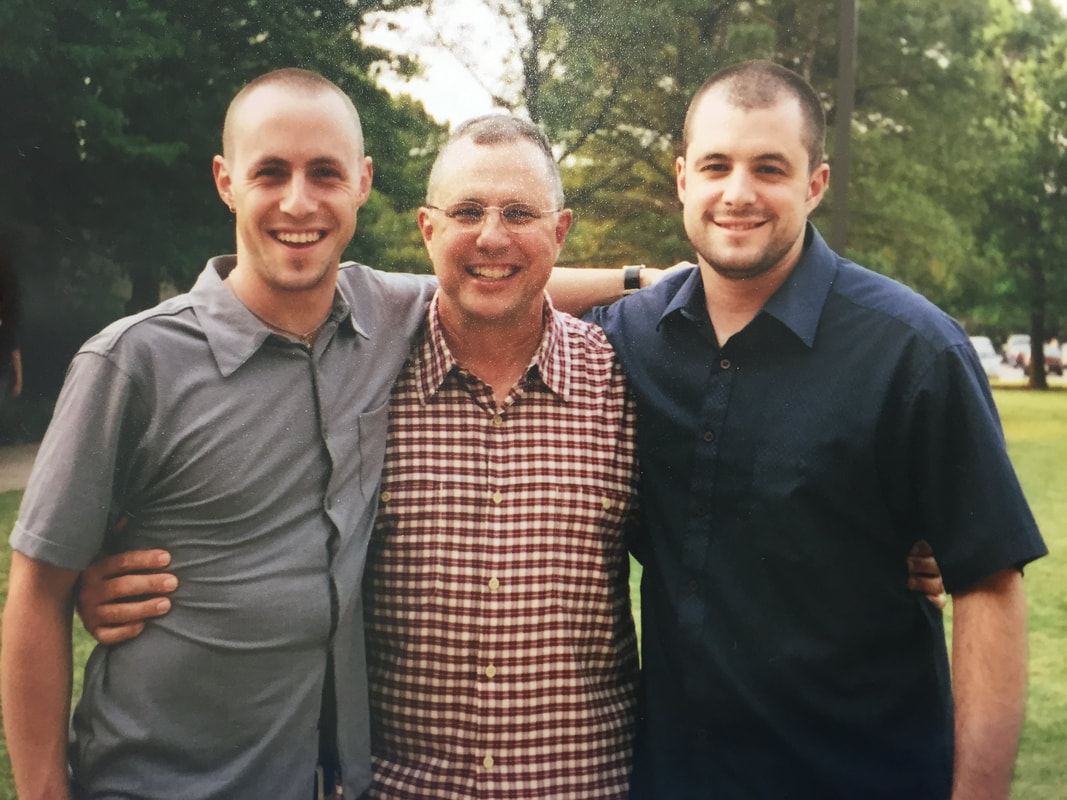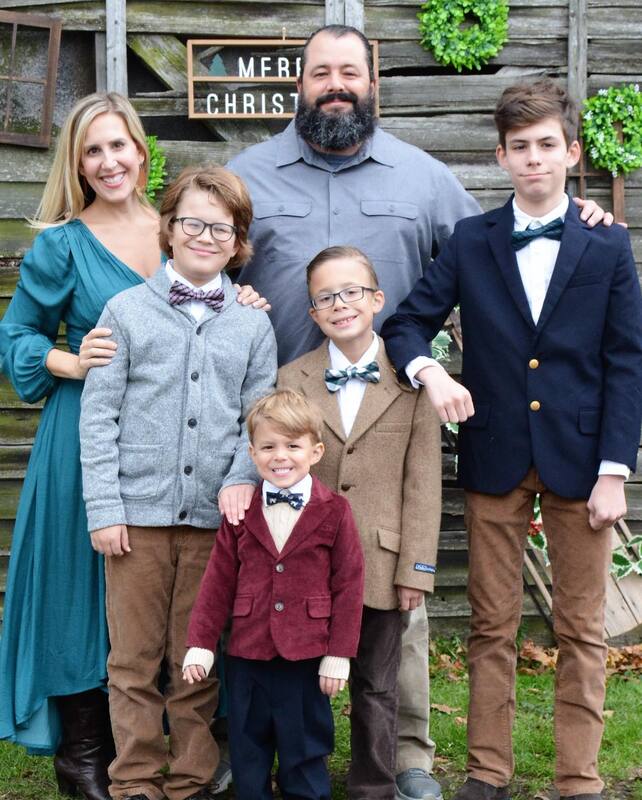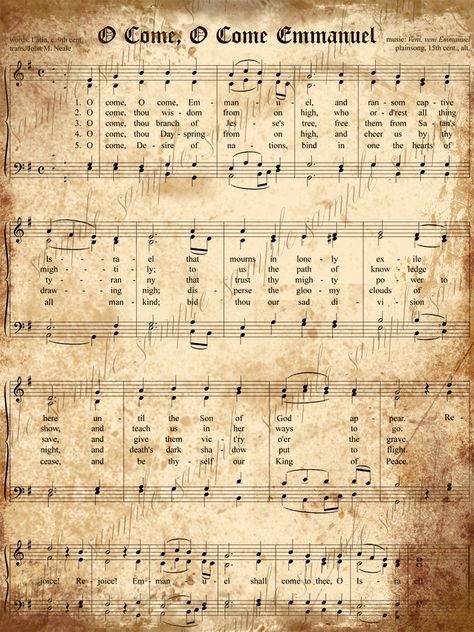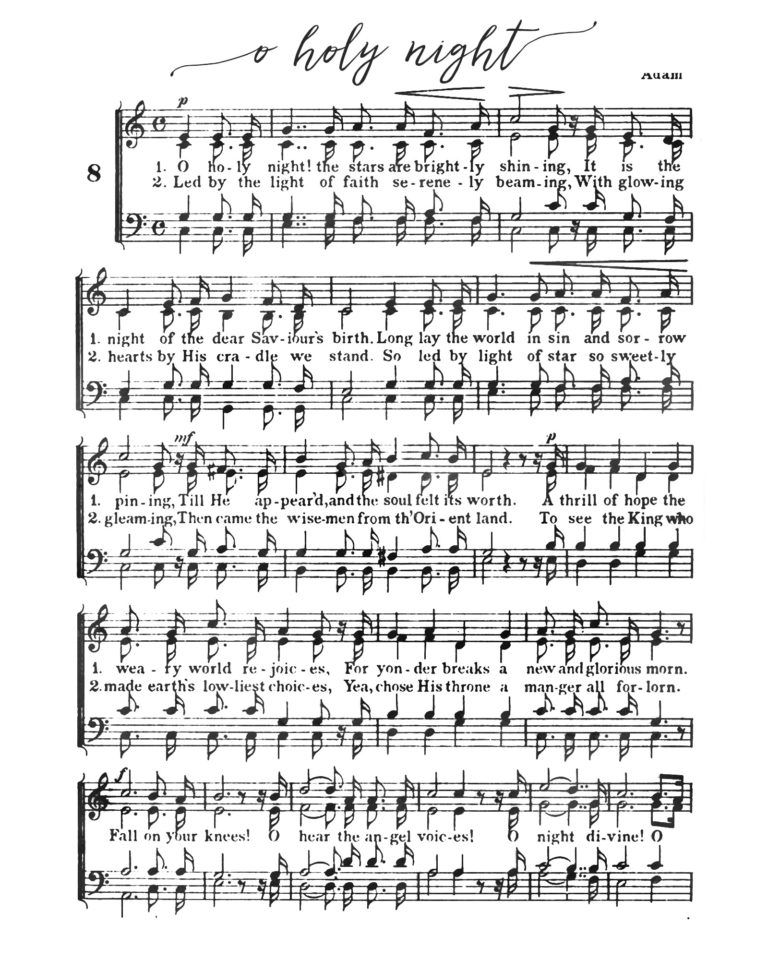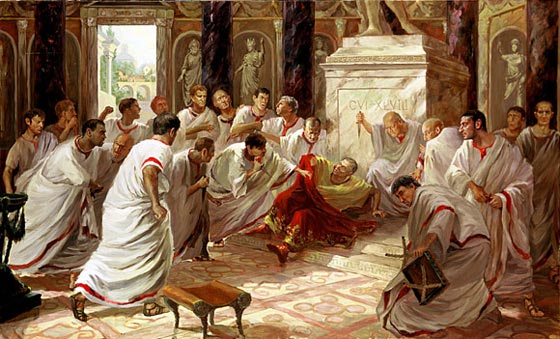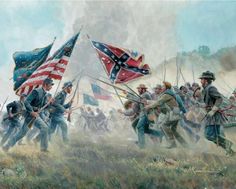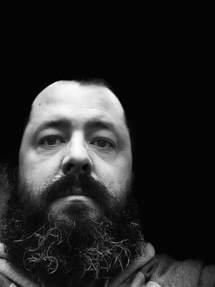|
Seth, my youngest, sat in my lap. We were watching a Clone Wars (or as he says ‘Clum Werz’) spinoff called “Bad Batch”, about a squad of Clones who each have unique and amplified identities and skills. They are outcasts now, and on the run. I asked him which was better – “Bad Batch” or “PJ Masks”, another of his favs. He looked at me, perplexed, and eventually said- “They’re both better.” Ha! His childlike delight in what he finds good does not have a category for ‘better than’. Alas, I’ve been one of the first to teach him the notion of comparison, which can be problematic, if not sometimes proper. This bit about comparisons is precarious for the soul looking for enlightenment, or peace, or salvation. The Lenten prayer of St. Ephrem is my favorite ordered prayer, and part of my daily rule. Part of that prayer begs – “Grant that I may see my own transgressions, and judge not my brother.” This is pride week at my middle school, part of the larger societal pride month. I walked into the building a few days ago and there were flags adorning lockers and hallways and doors. We will be showing videos about being “allies” during our home room periods, and I think we should always love our neighbors, whoever they are. I have a lot of personal opinions on these matters, and I wonder if those viewpoints could get me cancelled by champions and opponents of the LGBTQIA+ movement. Proverbs tells us that “even a fool is thought wise” if he keeps his mouth shut, and so I have. Nevertheless, I have thought deeply around this topic for many years, for a variety of reasons that are mostly personal. I believe that Christ’s command to love compels us to treat those we disagree with honorably and with grace. Rather than spout about my beliefs here, which would likely prove tiresome and troublesome, I’ve decided to post two of my fictional stories addressing the topic. I’ve found fiction writing very cathartic in this way. Writers must show, not tell, and this reduces the ‘telling’ greatly, which is where a truckload of our problems with one another come in. “Oil and Wine” (type 33 into the page box at the top) is a modern version of the parable of the Good Samaritan. It is an apology to the traditionalist crowd, and the hero (Samaritan) is a gay man. “Uncle Myron” is an apology to the pride crowd, and the hero is someone who affirms his gay nephew/adopted son as a human being but stops short of affirming his homosexuality. I hope you will take the time to read these stories. More than that, I hope you will see the image of Christ in your neighbor, and you will love, regardless of how uncomfortable or unsafe that might make you feel.
0 Comments
Jesus wasn't naïve. He knew how the Jews – his own - were being dispossessed and oppressed, systematically. Jesus knew. The Romans created an entire industry to bring in exotic animals for the simple “pleasure” of watching them be murdered. Whole species of God’s precious creatures were brought to extinction, and Jesus knew. People – God’s precious children – were being trafficked for cruel purposes: labor, sex, murder. The government was in on this – they vigorously protected the rights of slave-owners. In Rome, a father could beat, mutilate or murder his own wife and children, his slaves or animals, without fear of retribution. Patriarchy in its most perverted forms was perpetrated in Rome. A common evil that occurred at the time of Christ was child exposure. Babies were being abandoned in woods and on hilltops. These wretched killings were not forbidden in Rome until the late 4th century, and at the time of Christ, were accepted. Jesus knew. Orgies of lust and blood and hate and exploitation abounded all around him, and yet, we don’t see Jesus take the kind of forceful actions we might expect. Why not? We have almost no record of Jesus fighting the contemporary “social justice” issues of his day. We do see him in personal encounters with tax collectors (systematic oppressors), prostitutes, Samaritans, lepers and the mentally ill. Christians cannot ignore the seeming disconnect between the kingdom of God - with it’s message of love for the poor and outcast - and the relative silence of the gospels around abortion, murder, slavery, rape and systematic oppression, during the time of the ministry of Jesus. I’ve been coaching middle school boys basketball for a little under two decades, and it is one of my greatest joys. Our season was cancelled this year due to covid and it was a real drag. So, while I’ve been at tournaments with my son Noah these past two weekends, it took everything in me to refrain from being “that parent” and running out to the coach between games with “tactical recommendations”. I sat on my hands and bit my lip in the stands. One of the things you learn sitting in the stands is how powerful referees are – they determine the outcome of almost every single game 😉 I remind my players all the time – the referees blow several calls each game, sure, but - how many layups did we miss? How many free throws? Did we – all of us - box out on every shot? How many turnovers did we have? How many times did we let the other team get ahead on the fast break because we were mentally or physically loafing? I scout other teams to put my kids in the best position to win. Last year, in our final game, I put in a unique defense to limit a particularly strong opposing player. Almost always, however, the most important thing I think I can do as coach is make sure my kids are achieving OUR goals. In almost every single case, if we do this, we will win. And when we lose, it is most frequently about how we failed to meet those objectives. We can't get distracted fighting the right battle in the wrong ways. What is the supreme objective – the strategic focus - of Christ and his church? The scriptures teach us that one thing CONQUERS all – LOVE. Jesus defeated death by death. He was a "social justice warrior" in truth because justice can never be about victory over others. It can only be about reconciliation. The civil rights movement was a success, if not completely. What were their weapons of aggression? They were two: Suffering and love. Misguided revolutionaries talk about victory at any cost and tend to leave more destruction and lingering resentment in their wake. True revolutionaries – Gandhi, MLK, Socrates, Jesus – count the cost, and indeed, it is high. Nevertheless, they pay in love, aggressive love, for it is the only way forward, the only way to bring in the Kingdom of Heaven. When we keep chanting slogans, keep toeing party lines, keep requiring purity tests – we make things worse, not better. If you are a believer, and even if you are not – do you really think Jesus wasn’t brokenhearted about the wretchedness - the degradation of his creation - that surrounded him on every side? Many of his followers saw these evils and wanted him to go to war. They were not alone. “… the devil took Him up on an exceedingly high mountain, and showed Him all the kingdoms of the world and their glory. And he said to Him, ‘All these things I will give You if You will fall down and worship me.’” The Devil’s strategy is conquest. I see a lot of political warriors on both sides who want to defeat the "others." It’s a losing strategy, and we have to lay it down, though it might cost us our lives. On Great and Holy Friday, it seemed like Oklahoma weather came to Jersey. During the service, we carry the light of faith outside into the world, but when I walked in an usher nodded at the stack of unlit candles, and shrugged- “Don’t know if you want those or not. It’s pretty windy.” Great and Holy Saturday, and the wind had died down a little. This was also the moment of the Resurrection of Our Lord, so we braved the weather, carried our candles, even though they kept blowing out. Amidst the chanting crowd of worshippers, huddling outside the tomb, someone always kept the light of faith alive, and kept passing it along to others, even though this risked their losing the flame for themselves. No candle remained lit the entire service, but between us, the flame always burned. These two happenings, on consecutive evenings, were stark in their contrast, and in their meaning. On Holy Friday, I did not take the candles, and something about that felt quite jarring, and reminded me of my doubt. Often, when I anticipate disappointment, I avoid my faith. I don’t understand the ways of God, and I don’t wish to be troubled by the thought that I might have been abandoned. I own my failures, so I cannot blame my God. And the candle of hope remains buried, deep within my soul. Our vigil on Holy Saturday begins at 11:30 PM, and old and weary as I’ve become, a little sloth crept in. I confess that I considered just going for liturgy the following morning. Then Christian, my second-born, came to me, said he’d laid out his church clothes, just in case we went to church. There was pleading in his eyes. Well, we made it to church that night, but again, I did not initially take the candles. My heart yearned for the candle, though, and my boys wanted them, too. So, as we walked out into the breeze, the church bell tolling in the night as we walked three times around the church, our fingers clung to the wax of candles that did not remain ablaze. We had them, though, and they could be re-lit. During those services we represent the Myrrh-bearing women who were faithful throughout - while Jesus suffered his passion, and after he’d died. Their dreams of salvation were also dead, yet they still loved Christ with all their being, despite their broken hearts. We must follow their holy example; we must hold fast to hope. Another observation-
It was midnight-thirty, and as we walked the thrice-round path outside the church, the bells were ringing, loud and continuous, for at least ten minutes. My boys giggled quietly, pointing at lights coming on here and there from windows among the rowhouses that frame the edge of the church property. Internally, I was musing about whether our parish sent out a notice to the neighbors. I can imagine some people were annoyed by our celebration. I also thought about those who heard the bells, and remembered the faith of their youth, or a time when they still held the candle of hope. I prayed they were buoyed by our shouted and sung declarations and confirmations of victory: CHRIST IS RISEN! TRULY, HE IS RISEN! A little over a year ago, we all went into lockdown. Soon after, I started writing these little essays about “holding on to the good.” My first post was entitled “What Use Is There In Living?” I haven’t posted something new in over a month. I confess – I’ve been depressed. There has been a lot of loss around me. Many good people have departed us. We lost a friend about two weeks ago who was a steady and good part of our lives during all my years in New Jersey. I met Tom before my oldest son Noah was even born. Devoted to his daughter and his friends and his church, Tom was dutiful, funny, interesting, and kind. I’m particularly thankful that in recent years, he looked after and instructed my three oldest sons as they served in the altar. I have many friends who have begun to lose their dear ones. This sadness and loss brought me back to my original question – what is the use, when our lives pass so briefly, when our noblest efforts seem vain? My wonderful wife Jessica splendidly reminded me that service offered in love is never lost, that every good deed done mystically impacts other human beings in ways we won’t understand, on down through the ages from generation to generation. “They/we just don’t get the credit.” The veneration of icons in Orthodox Christianity was a stumbling block to me in early days. Later, I learned that veneration - praise of any other - is ultimately appreciation shown to the Author of all that is good. In our goodness, we are icons of Christ. Sometimes we want the credit, I guess, and that is a stumbling block, too. I’ve always been challenged by the passage on heroes of the faith in Hebrews chapter 11- “All these people were still living by faith when they died. They did not receive the things promised; they only saw them and welcomed them from a distance, admitting that they were foreigners and strangers on earth.” I used to think that an ideal not expected of the many. Yet here we are, dying a little more every day, and so much remains undone. When we are tired and suffering it is hard, and few probably understood the constant feeling of defeat more than Saint Paul, who was beaten, arrested, harried to and fro his whole life. Yet, he wrote to the Galatians – “do not become weary in doing good, for in due season we will reap if we do not give up.” To those without faith, the life of Saint Paul is a cautionary tale. Eventually he was beheaded during the persecutions of Nero, one of the most anti-Christian of Roman emperors. Certainly contemporary observers might have considered his efforts a true failure. Consider Dr. King, who was killed for his dream, which remains so, tragically, seemingly just beyond our reach. It’s that “in due season” that can give us trouble. We want to see with our own eyes. We don’t want to wait. We want change right now. A year in and it feels like this pandemic is rounding the corner. However, trauma has been unleashed on so many levels that the end will not likely come for many years. Many if not most have been wounded in ways that will endure for the rest of our lives. As a middle school history teacher and parent of students in preschool, elementary school and high school, I see all sorts of aspects of the trauma, emotional and academic and social. Thank God I have been working and getting paid. Others know financial trauma. Some have lost those nearest to their hearts. Lord, have mercy. Two of the books I read this year addressed the Holocaust. My timing might have been poor. In both (In Paradise, a fiction by Peter Matthiessen and Night, a memoir by Elie Wiesel), there is the real quandary, not only of death and loss, but of dark horrors. In both, faith died. Yet only in its dying could it become real, and eternal. Maybe reading those books was wise, for it reminded me of all the good I still have, and also to be wary of petty and foolish divisions that become the fuel for dehumanization and hate. It also taught me that we must persist in hope, even when it has been seemingly annihilated. I know you’re tired. So am I. I see a lot of hurt and harming on social media these days. But we must not become weary in doing good. We won’t get the credit, but it might change the world. This week is “Say Something” week in my school, and it is all about connections. So, yesterday we watched a silly, animated video about a guy who is so lonely and self-absorbed that he walks by and ignores several chances to connect with other human beings by offering his aid. Then, providentially, an elderly woman grabs his arm at a stop light and compels him to walk her across the street. Miracle of miracles - this single instance alters his entire existence and henceforth he is engaged with others, helping them and helping himself connect, and thus healing his sad little soul while bettering the world all around him. They had to pack a lot in the two minute video, so they left out all the realistic parts about his fits and starts, relapses into selfishness and shame, his stumbles and bumbles along the difficult path of agape. The admonition is truth, though. We need to look outward to see those human beings around us – old and young, strong and weak, happy or miserable, lovely or difficult. We need to recognize others, and help them to feel known, and loved. This is hard. This morning as I drove to work, praying the Lord’s prayer, I noticed an important sequence for the first time. “Forgive us our trespasses, as we forgive those who trespass against us” is immediately followed by “Lead us not into temptation, but deliver us from evil.” I always thought the “temptations” were things like lying and debauchery, you know, the really bad stuff. I’m sure that’s part of it. But the sequence jumped out at me today (what a slow learner I can be). We must really see those around us, and we must love and heal or we won ‘t survive. Yet, often, we can’t get past the flaws and failings of our neighbors, and so our looking out turns to judgment and disdain, perhaps leading to slander and gossip, but certainly nurturing pride. The proximity of forgiving trespasses and asking to be directed away from temptation is important, I think. What a dilemma we face. If we do not love our neighbor, we have no place in the Kingdom of God. Yet, this requires us to see them, in all their frailty, and stifle our judgments, and only love, as we are loved by God. This conjures the painful musings of St. Paul, which are often our own – “…I do not do the good I want to do, but the evil I do not want to do – this I keep doing.” In an attempt at practicing being present this week, I turned off the television and went into the playroom and sat down beside my son Seth, who is 5. He was playing with a variety of action figures and stuffed animals and Legos. I just sat quietly and listened as he gave a different voice to each of his characters. He was also pretty handy with the sound effects. If you have not observed your child like this in a while, I recommend, highly. It is as soothing as listening to a bubbling creek or watching wind jostle tree boughs in a forest. More, because he is my son. Sadly, my silent presence was strange to Seth, so he asked me what I was doing. I am watching you play, son. Yes, but why? Because you are special. No, I am not special. You are truly, son. No, I am not. Well, let me say it differently -you are wonderful. Yes, I am wonderful. Just not special. Ah, the wisdom of childlike faith. It is God’s desire that none should perish, and Christ died “for all.” Each of us, despite our fallen natures, our loneliness, or crooked brokenness and scars, have been lovingly made in the image of God. We are wonderfully and fearfully made. And so are our neighbors. Even if they have made former President Donald Trump into an idol. Even when they have decided their true gender identity doesn’t match their gender at birth. Even if they protested recklessly and violently in Portland. Even if they protested recklessly and violently in D.C. Even when they draw false equivalencies, or promote damaging untruths. Remember the demonized man from Gadara, who lived in caves, cut himself with stones and had to be chained because he generally terrorized the area. Remember the outcast lepers and tax collectors, or the self-righteous teachers of the law? Remember the woman caught in adultery and the Samaritan woman at the well? How can we forget the man whose position of power represented oppression for the Jews – the Roman centurion? Or that other Roman centurion who crucified our Lord? What of the thieves on the cross to His left and His right, one repentant and the other hardened? What of Mary Magdalene, the one-time demonized harlot who wept beneath his nailed-scarred bloody feet? What about those valiant men who abandoned him as he died: Nathaniel the skeptic, Thomas the doubter, Peter the denier, or Judas the betrayer? All wonderfully and fearfully made. Just like you and me. My father was a music pastor. I am biased, certainly, but my guess is that anyone who encountered my Pops in this role would affirm that he was one of the most effective worship pastors they’ve known. He did a masterful job planning each service. It was a gift, and this offering was even more effective because none of it was about him. He did lead, but almost universally shied away from soloing. He invited others to do so, and cultivated their gifts by offering them opportunities and praise along the way. I was spoiled by his craft. He always chose the proper mixture between songs of repentance and rejoicing. He recognized the need for this balance between awe and humility on the one hand, and gratitude and praise on the other, and strove to make this path available for parishioners every service. In my journey I have visited and participated in almost every type of denomination. I am a wanderer by nature, and I enjoy learning new things and meeting interesting people, gleaning from them crumbs of wisdom that I would have never known otherwise. Along the way, I encountered several churches that are heavy on the praise and proclamation and short on the repentance, and this struck me as wrong, irreverent even. My personality is melancholy, so some of this is personal preference. I remember leading a few services at a small Baptist church in Shawnee, OK when I was in college. Eventually, the pastor told me my services would no longer be needed, because I was heavy on songs of repentance. I thought repentance is the first step to joy, and it is, but he told me his people needed more uplifting music. (If only I could go talk to my younger self 😊) My journey eventually brought me to the Orthodox Church, where we sing “Lord, have mercy!” more than any other phrase. This is our motto, and it is my favorite prayer, because it is truly all-encompassing. The fuller version of this – the Jesus Prayer – is “Lord Jesus Christ, Son of God, have mercy on me, a sinner.” Everything is there – theology, praise, love, repentance, hope. We also have several multi-week periods devoted to prayer and fasting, repentance, with constant prayer services devoted to the wretched state of our souls and a meditation on our deep need for salvation. It suits my personality, all this focus on repentance, but like with my father’s planning, there is balance, too. Among the things I’ve learned is the Prayer of the Hours that I’ve made a part of my daily rule. During the middle section of the intercession there is this- … guide our lives according to your commandments: make holy our souls, cleanse our bodies, correct our thoughts, purify our intentions and deliver us from every sorrow, evil and pain… So, I say this prayer almost daily, and for years now, the sort of cynical part of me agrees with all the parts about cleansing and correcting, but “deliver us from every sorrow, evil and pain?” That sounds like those churches I went to that catechized their members to believe everything would always work out, to the destruction of faith in many, I suppose. Some part of my psyche has subconsciously rejected this prayer for years. It appeared unseemly to make such an audacious request. Life is hard, destructive, desolate, and sad. Almost daily, if one pays any attention. It seems a fool’s errand to ask God to “deliver us from every sorrow, evil and pain.” Yet, today, after several weeks of my wife treating me with a great deal of kindness that I have not earned, cheering me toward wholeness, (Notice here that her love in action, not her theology or lecturing, moved me) I recognized the wisdom here.
The balance. We need songs of repentance, truly. We also need songs of deliverance. Perhaps, due to our frailty, we have greater need of the latter. Perhaps. God loves us as we are, yet longs to draw us closer to holiness that we might live fuller lives. Consider the Samaritan woman at Jacob’s well. She lived in a manner that was sinful, and harmful to her own soul. Yet, Jesus first sat with her and talked, heard her sorrow and looked into her sad eyes, when everyone else treated her with ridicule and ostracism. Jesus knew she needed love first, then truth. This is how we must love our neighbor. I have a few students who have done diddly-squat during this crazy time of online-hybrid-virtual-pandemic learning. They’ve just checked out. And in our teacher meetings, some bemoan these lazy little children and their irresponsible parents. And yet, they are people, these little ones, who need to be loved, despite their pitiful effort. So, when I see one of these children pass by, I try to reach out with a smile and ask something I think they can answer, to make them feel accepted. I try to give them a moment of peace, when I’m not checking in on their meager effort, but instead just seeing them, the person they are in their sadness. The point is, I sort of understand this, how to love my neighbor with mercy. (I’ve still got a long way to go.) However, I often refuse to accept that I SHOULD ASK God for joy, and deliverance from “every sorrow, evil and pain.” Maybe you’re like me, and your focus is always repentance. This morning I was reminded that it is alright to ask God for good, too. A perfect Father who gives good gifts, He is waiting for you and me to share the deepest longings of our souls. Part of faith is the humility to recognize our need for great mercy. The other part is hoping against reason that Our Heavenly Father will draw us near, and hold us, and wipe our tears, and fill our souls with rejoicing. So, join me as I ask God to “deliver us from every sorrow, evil and pain.” Press on. This week two events converged in my life. First, I am a public-school teacher. There are a great many things public schools stand for that I endorse, heartily. However, there are other areas and political ideologies that agitate me because they violate my sense of right and true and helpful to children. This week was the first time I’ve been put in a situation where that agitation became raw, up close in a way that was inescapable. What am I to do? The second was a text from a friend, sending along some political information about a Biden appointee, followed by the declaration that now it is time for me to “stand up like a man.” What am I to do? Among teachers there are a load of things about which we can justly complain, especially right now, and one of the phrases that gets tossed around a lot is the question – “is this the hill you wanna die on?” The answer is usually ‘no’. This begs important questions. First, which ‘hills’ are worthy of our sacrifice? Also, is there a right or wrong (a worse, better, best) way to stand up for what you believe? I once had a pastor who said that unless you have wept over the sins of your neighbor, unless you have a broken heart for how their sin is destroying them, you needn’t bother speaking to them about their issue. While I think nuance should applied even when you are broken hearted, I also believe there is wisdom here- Unless you act in love, do not act. Jesus did, in fact, die on a hill. His sacrifice was for the salvation of the whole world, and I think we can all agree it was a worthy death. Indeed, we rejoice in his Passion! I also think that whatever aggressive methods illustrated in the story of Jesus – there are very few really (speaking stark truth to legalists and turning over the tables of the moneychangers) – are sanctified by the fact that he was first of all, and only, LOVE. If we go around dying on hills, and have not first died with Christ on Golgotha, if we have not died to our own selfish and vain imaginations and if we have not loved our neighbor as ourselves, perhaps we die in vain, or worse, harming others. What of those who stoned Stephen for teaching against their ‘righteous’ principles? What of the fools who tried to cast out demons in the name of Jesus, only to be beaten and rebuffed by the demons who said “Jesus we know, but who are you?” What about that time Peter refused to sit with the gentiles because they did not keep the whole law? In each of these cases, and there are many more (in the bible – the history of the Christian Church has endless examples – Crusades, Inquisition, etc.), the culprit was acting according to their principles. They were standing up “like a man.” And, they were wrong, not necessarily because of their principles, but because they didn’t have love.
There are many issues facing Christians today in a world where ideology changes every time the wind blows. We are afraid, perhaps rightly, that our norms and traditions will soon die. Let us not forget that the Roman Empire into which Christ was born was one of the most wretched and immoral times in all of history. Most of the wretchedness was either ignored or endorsed by the political powers. For some reason the gospel writers chose to mention almost zero times Jesus addressed these concerns. Indeed, if anything, he was shown rubbing shoulders with prostitutes and tax collectors and other villains. He was love. I assert that if you do not die first on the hill of Christ - Calvary - you risk great and perhaps damaging error dying on any other hills, because you act out of vanity and fear, not love. This is an uncomfortable place, I know. Press on. As a teacher, I’ve evolved, a lot. When I began, I lectured almost the entire period. I believed the information – the facts – were so important. I used to frown at almost every professional development day that involved some “expert” strong-arming historical moments to teach “lessons” to the children. I fancied myself barely a teacher, mostly historian. History was my focus, and it was my firm intent to become an esteemed professor of history down the road. Teaching middle school kids was just a stop along the way. I did finish a graduate degree in history, and when I came to the precipice of doctoral study, had a choice. See, I’d worked for that M.A. while we had only one child, my oldest, Noah. Even that was a strain on my wife, and me, and surely Noah. We have four children now. So, part of my decision was about pragmatic concerns regarding family life. A second part was about money. It always is a factor, in every decision, and we didn’t have any. A final part was that the intense study of history was killing it for me, just like studying music theory had stymied my love for music during an earlier college career (I’ve had many short stops along the way, and I’ve had a total of five majors and attended six colleges). My focus in history is on the ancient past – the Greeks, Romans, Goths, Vandals, etc. What I found was how much wasn’t to be found. How much speculation goes into all of the ‘facts’ in books. It’s logical, really. How many people think Trump is the worst president in the history of America? How many think he is the best? In this historical moment, right now, our country is split, almost completely in half. In the past they weren’t worried about tolerance or political correctness, so the histories written are chock full of bias. No doubt, much was exaggerated, and even more left out. Sometimes the winners just burned every single thing to dust. Archaeology helps, of course, but it is also based upon a good amount of speculation and speculative comparison to other speculations. So, here’s the bad news. We don’t really know what happened; it’s all just educated guess. At least, not in a telling of the story kind of way, where we can know exactly what they thought and felt. At least not way back. One day, our time will be way back, and who knows what they’ll think of President Trump, or if anyone will even know he existed at all. Perhaps the USA will be erased or minimized to a blip on the historical radar. Why am I dropping this bad news? You’re probably asking ‘what is the point, Blake?’ There are concrete facts. However, when it comes to the human condition, the brain, anthropology, sociology, political science, philosophy, religion, and yes, history, facts are uncertain, and almost always in flux. Even in the harder sciences like biology or chemistry, we sometimes find our previous notions were incorrect. Now, I like facts, just like you. They give us a sense of order, norm. But, and this is where I may aggravate a few folks, I think sometimes facts can become a diversion that is just as dangerous as a fling with our passions, pleasures, sins, lusts, gluttony, etc. Those things inure us to our pain and sorrow, essentially stifling our own soul so we don’t have to hurt. I’d argue that our modern day infatuation with “facts”, particularly of a political nature, is a form of clinging to an idol. (As an aside, the media and big tech are making a lot of money selling this idol.) Here is what I believe. We know almost nothing. We need to feel safe and secure, though, and so we go searching for a harbor. Some people try to make money, while others seek fame. Some hope they’ll find happiness in the perfect mate or family or job. Material possessions or sexual deviance are other favorites. Facts are too. When I teach now, I still sprinkle in quite a few of those important facts, 'cause, you know, they have some value after all. More importantly, though, I try to remind the children they have souls. And that life will only make any sense at all if they can come closer to understanding and embracing that deepest part of themselves, no matter how painful it might be. And that many things, facts included, will be temptations to ignore that part and move on down the road, oblivious to pain or fulfillment. Don’t do it, I say. I am a person of faith. I say this unabashedly, though most of my life is a struggle with doubt. I believe there is One who knows all the facts, and He also holds me close, if only I’ll be quiet, and hear, and feel. Last year - 12/21/19 – was a Saturday, and we had just begun Winter Break. Boy, did our family need that time for recuperation. My three oldest were playing basketball, so we were all over the place each night. My oldest, Noah, was playing in the local recreational league, and also for his middle school. In the local league, his team was playing well, and was destined for a number 2 seed in the end of season playoffs. Sadly, those playoff games were never played, and it was Noah’s last year. The Pond Road Middle School Knights Boys team was 5-0, having just beaten our league champs in their own gym by 14 points. I saw perhaps the best pass I’ll ever see, in that game. Our point guard and captain (Lucas) took down a rebound and threw the length of the court to our big man (Evan), who had run the floor and was at the rim, for a layup. The entire play took about a second and a half. It was a masterpiece that would have made John Wooden proud. I was having the time of my life coaching all those young-bloods, who are excellent people as well as ballers. My wife was prepping to serve as interim Vice Principle in an excellent NJ middle school, and also throwing holiday parties as Homeroom Mom for our middles. All this while showing and listing homes as a real estate agent and being the wonderful CEO of the Kilgore homestead. My youngest, well, he was mostly just cute, but still busy as a bee. All this activity was wrecking our Advent family meetings, though. A few years earlier Jessica (my lovely bride) initiated an evening meeting for the family to sit together, read Advent scriptures, discuss, and pray. I cannot put words to how valuable this has been to reorient our family meditation on Christ our Savior in the time of Joy. But last December was crazy, and we frequently had to double up days we missed because I was just arriving home from an away game, or the boys had late games, or Mom was out showing homes. December 2020 - there are no hoops or holiday parties, and that is a real drag. Not everything is bleak, though. This year our family has not missed a single night to sit together, pray together, listen to our son Luke read the scriptures, and hear each of our boys marvel and pray. We added something new this Advent and I am so grateful! One of the great blessings of my childhood was to have learned the joy and belonging of communal family singing. It is something I think has begun to dwindle in the world. I’ve done poorly making it a part of our family tradition, but this year my boys are learning the joy of lifting their voices together in hope, desperation and joy. We’ve started singing Christmas Carols – Silent Night, Away in the Manger, O Come All Ye Faithful, etc - and little Seth starts dancing around while we sing, and he even has some silly little songs of his own – “Christmas Day, Christmas Day, Santa Claus is here, Here’s a deer, there’s his deer, what’s in Santa’s Ear?” Who knows where he got that?
Seth (5) loves to pray, thanking God for the Gingerbread men, the Snowmen, the Star, the presents, and no prayer ever ends without an - “I really hope I get a green car that drives real fast”. Okay, okay, we get the hint. There is another thing he says in all of his prayers- “God, thank you for sending the Angels to take care of Baby Jesus, and thank you for keeping Him safe.” His little child-mind is wondering about that tiny divine bundle, out in the cold of a manger, surrounded by large farm animals and visited by strangers. He worries about Baby Jesus, and his safety. He’s glad God thought to protect him with Angels. During my last December in Oklahoma, I went to confession. I was really down on myself, full of doubt and self-loathing. My priest (Father George Eber for all you Tulsans) heard my confession and offered this guidance. Go, he said, find a living nativity. Look at the babe, and see yourself there, vulnerable and pure. That is how God sees you. It is the time of the Nativity, a time of Joy. For those of us who believe in the teachings of Christianity, it is a wonder that defies our notions of power and majesty. If it is true, and I believe, God became helpless, innocent, lovely and small. He submitted himself to the cold of our fallen world. We faithful (poor shepherds or wandering wise) bow at the animal trough, and peek over the hay at the cooing Creator, and hope against reason that we can be made whole. Bless you all and may you enjoy the fullness of the Nativity Joy! I have a son that will “cut off his nose to spite his face”. One day, driving 3 of my 4 sons away from home for an outdoor adventure, my wife called. The missing son was wailing at the window. He’d desperately wanted to join us, to go out for some fun, but when I did not agree to all of his terms (he likes to bring “stuff” – tons of it, most that will be lost or destroyed), he adamantly refused to join us. I asked him if that was really what he wanted, and that we would be leaving shortly. He was resolute, even a little snarky. Okay, I said. I’m sad you won’t join us. We packed up, departed, and no sooner than we’d pulled out of the driveway, my little guy was beside himself, falling apart with regret. He was willing to lose the most important things in negotiations to achieve his particular vision for the day. This week, I started my unit on the fall of the Roman Republic. We learned about the origin myths of the Romans a few weeks back. Legendary Brutus (not the one who killed Caesar; his forebear), fed up with the abuses of the Tarquinian Kings, destroyed their power, and established the Republic as bulwark against future Tyranny. We Americans tell a similar origin story. King George III of England was a tyrant, and we overthrew his power and that of the British Empire. We tried the Articles of Confederation for a while, but those pesky young states couldn’t keep from harming one another and getting in each other’s business. Hmm. Anyhow, you know the story – the Constitution was drafted, and a great many checks and balances were inserted to keep any group or person from becoming too powerful. Like the Romans, we set ourselves up as a nation against Tyranny. So, this week, we started the unit in school where I tell the students about the Gracchi, progressive reformer brothers who wanted to raise the level of the Roman poor. Sounds nice. Unfortunately, they decided their cause was righteous enough they could change the rules, break with tradition, norms, and even the law. Later on we’ll talk about Sulla, who led the reaction against those progressive changes. He was the leader of a group derisively called the optimates “the best” by the progressives (populares). They wanted to take Rome back to its glory days, like, you know, Make Rome Great Again. Anyhow, long story short, the optimates and populares had a series of civil wars because both sides had heroes for leaders (the populares had Gaius Marius – a war hero who’d become consul despite not being part of the ruling Patrician clans) who put themselves above the law. Wait, you might be thinking, I thought tyranny was bad. What about King George III or Tarquinius Superbus (what a name)!? But, with Marius and Sulla, it was different, you know. They had a cause, a righteous one, and it was worth it to break with tradition to get their “platform” across, right? No. Marius and Sulla were responsible for thousands of deaths and hundreds of straight up murders. Sulla actually posted the names of people he didn’t like in the forum, and they were open game for bounty hunters. This amounted to government hit contracts on his political enemies. There were times when a visit to the Forum (sort of like the town square in Rome) meant you’d see heads on spikes while you were shopping for fresh produce. Ironically, Marius and Sulla did not die by the sword. The damage they’d done to the Republic was irreparable, though. A new generation of political supermen was coming. The famous orator Cicero ordered the execution of a man without trial. Another politician named Clodius waged a campaign of mob violence in the streets of Rome, assaulting and killing anyone who stood up to his policies. Everyone knows Julius Caesar. He had everything. Good looks, popularity and a family name to boot. Add to that he’d conquered the Gauls, an age-old enemy of Rome. He was at the top. He was also in debt, constantly, so he needed to stay in power. He was marching home with his army, and the leaders got nervous, and they reminded him of tradition. He thought that would lead to his demise, so he broke the rules and started another civil war. He won, and made himself dictator, first for ten years, and later, for life. Wait, that sounds like a tyrant? The descendent Brutus, surely obliged by his family tradition of resistance to tyranny, led the conspirators who stabbed Caesar to death. Problem solved, right? Nope. It was too late. Another civil war started. When I get to this part, my students moan about how ‘could those foolish Romans not see they were destroying themselves’ – yup. This time, however, the winner – who took the name Caesar Augustus (the nephew of Julius) – was smart. He pretended to honor tradition and gave the people bread and games. He also created a massive Praetorian Guard (think Secret Service, but with numbers like an army) who quietly eliminated anyone who spoke out. He hired the best writers, poets, playwrights, sculptors, etc. to portray him as hero and later, god. The idea of the Republic was dead, replaced by an Imperial Bureaucracy that was the embodiment of Tyranny. When I was a youngster, my parents put me in a bible study group called 2:7, based upon a passage in Saint Paul’s letter to the Colossians. It reads:
“Rooted and built up in Him, strengthened in the faith as you were taught, and overflowing with thankfulness.” I think the study was good, but only one thing sticks in my mind. We read this story called “The Tyranny of the Urgent”. It was an essay explaining how what we think is important at this moment becomes so powerful that it forces us to ignore those things that are most vital to our lives, notably our meditation on God – “rooted and built up in Him.” Lord, have mercy! I hate to write anything political, because I love people who disagree with me on a number of issues, right and left. I don’t want to wound them, and I don’t want to sever communication with brothers and sisters. I think we are in a dangerous time, though, and the watchman who doesn’t sound the alarm has blood on his hands. When I think of the Gracchi or Sulla, I think of politicians who were committed to their vision, to winning, at all costs. When I look at our political circus today, I see the same, and I’m worried and grieved. If what you’re fighting for requires you to ignore tradition, break the rules, turn to violence as an answer or secede, perhaps you’ve been wrangled by the “tyranny of the urgent”. The Late Roman Empire, the Holy Roman Empire, the Byzantine Empire, and the British Empire all had something in common. They believed that God was on their side. They’re all gone now, only history. We like to think America will last forever, that it is invincible because it is “under God”. Only if we are vigilant, if we have a clear focus on what is vital, and can also perceive what tyrannies are lies. Only if we are rooted and built up in the Author of all that is good, first and only. |
"Examine all things; hold on to the good."
-Saint Paul the Apostle Archives
September 2022
Categories |
